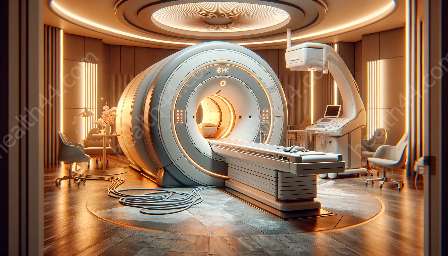Magnetic Resonance Spectroscopy (MRS) is a powerful technique that provides valuable insights into the chemical composition of tissues and plays a crucial role in magnetic resonance imaging (MRI) machines. This innovative technology is revolutionizing the field of medical devices and equipment, offering precise diagnostic capabilities and enabling personalized treatment plans.
The Fundamentals of Magnetic Resonance Spectroscopy (MRS)
Magnetic Resonance Spectroscopy (MRS) is a non-invasive imaging modality that utilizes the principles of nuclear magnetic resonance (NMR) to analyze the chemical composition of tissues. Unlike conventional MRI, which primarily provides anatomical images, MRS offers valuable information about the metabolic and biochemical processes within the body.
Integration with MRI Machines
MRS is often integrated into MRI machines, allowing clinicians to obtain both structural and metabolic information in a single imaging session. This integration enhances the diagnostic capabilities of MRI machines, enabling healthcare professionals to make more accurate assessments and develop targeted treatment plans.
The Significance of MRS in Medical Devices and Equipment
With its ability to detect subtle biochemical changes associated with various diseases, MRS contributes significantly to the advancement of medical devices and equipment. It enables early detection and characterization of abnormalities, leading to improved patient outcomes and personalized medical interventions. Additionally, MRS plays a vital role in research and clinical trials, facilitating the development of innovative diagnostic tools and treatment strategies.
Applications and Impact
Magnetic Resonance Spectroscopy (MRS) has a wide range of applications across various medical specialties, including neurology, oncology, and cardiology. In neurology, MRS helps in the evaluation of brain tumors, neurodegenerative disorders, and metabolic brain diseases. In oncology, MRS aids in tumor characterization, monitoring treatment response, and differentiating between benign and malignant lesions. Furthermore, MRS has proven valuable in assessing cardiac metabolism and identifying metabolic changes associated with heart conditions.
Future Developments and Advancements
As technology continues to evolve, the potential of MRS in MRI machines is expected to expand further. Ongoing research aims to enhance the sensitivity and specificity of MRS techniques, paving the way for more accurate diagnoses and personalized therapeutic approaches. Moreover, advancements in hardware and software capabilities will continue to optimize MRS integration with MRI machines, ultimately benefiting patients and healthcare providers.


